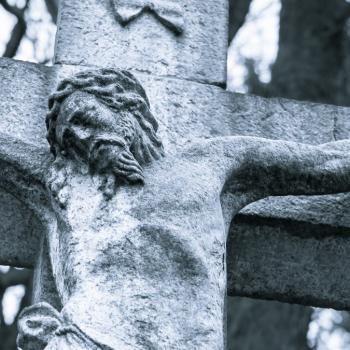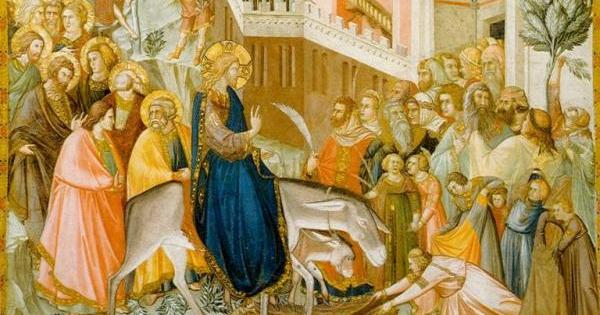“My God, my God, why have you forsaken me?”

These words of Jesus, spoken in agony while dying on the cross, are the most haunting in the Bible.
Jesus Christ: the Messiah, the Son of God, the Emmanuel–the embodiment of God’s presence with the people–suffers on the cross and exclaims that God is no longer with him. God has abandoned, forsaken, him, while he suffers the deepest suffering.
He had prayed for this cup to pass from him, but here it is. And he felt it deeply.
Known to Christian tradition as the “Cry of Dereliction,” the phrase is recorded in the gospels of Matthew (27:46) and in Mark (15:34).
Both texts record the cry in Aramaic, the common language (though Matthew uses the Aramaic for God, “Eloi,” while Mark uses the Hebrew “Eli”). Both also then render the cry into the Greek (which is the English we’re reading in our Bibles: “My God, my God, why have you forsaken me?”)
The phrase is a quotation from Psalm 22. It’s the first line of the Psalm. The first four lines of that Psalm reads:
My God, my God, why have you forsaken me?
Why are you so far from helping me, from the words of my groaning?
O my God, I cry by day, but you do not answer;
and by night, but find no rest.
Was Jesus, the Son of God, really abandoned by God in his darkest hour? Shouldn’t this trouble us? Shouldn’t it concern us? If God (Yahweh, the Father) would forsake Jesus, what makes us think God wouldn’t also abandon and forsake us in our darkest moments of despair?
And if, as orthodox Christian theology has long affirmed, Jesus was and is fully divine and fully human, wouldn’t his divine nature have prevented a literal abandonment from God? Wouldn’t the “homoousios” (sharing the same divine nature) of Jesus as God with Father and Spirit have precluded God from literally forsaking Jesus?
The Psalm concludes with a word of thanks to God for rescue. God rescued the despondent, suffering one from “the horns of the wild oxen” (v. 22).
And the Psalmist gives thanks, because God “did not despise or abhor the affliction of the afflicted;
he did not hide his face from me, but heard when I cried to him” (v. 24).
In Hebrew tradition, it was common to reference the first line of a Psalm as a way of bringing to mind the whole Psalm. Because of the positive ending of the Psalm and the words of testimony for deliverance from God, some have suggested that Matthew and Mark are doing just this.
That is, the use of the first line of the Psalm–which indicates great despair—could have simply been a literary technique in the two gospels to indicate that God would soon deliver Jesus from his suffering, just as God delivered the Psalmist from his despair (from “the horns of the wild oxen”). The reader/hearer of the gospel would recognize the cue and anticipate deliverance from the suffering.
But I’m not so sure.
That explanation seems trite and forced, given the context of darkness (the sky is pictured as very dark, even in mid-day) and the depth of suffering and despair Jesus undergoes. That God’s Messiah felt abandoned by God should strike the reader to the core. I think we’re supposed to shudder with dread–just as Jesus did.
We shouldn’t bog ourselves down into the metaphysics or the ontology here. We don’t necessarily need to know what Jesus being abandoned by God means for Christology or for trinitarian theology.
Not today, not on Good Friday, at least.
We only need to understand that Jesus deeply felt abandoned by God, forsaken by the one who had sent him into the world. Even the anticipation that this was coming, couldn’t take the dread away, once it came.
These haunting words, spoken by Jesus on the cross, shouldn’t be minimized. They shouldn’t be minimized because they show that Jesus knows suffering. Jesus knows deep dread. Jesus knows darkness. Jesus knows loneliness.
There are many today suffering from the dread of dark depression, the solitude of loneliness, the pangs of literal hunger, the alienation of being separated from life. The pains of loss and death, whether by war and terrorism, or disease and deterioration, resonate in Jesus’ words on the cross.
We don’t need to answer whether Jesus’ despair was the result of a metaphysical separation of God from Jesus, a turning of the Father away from the Son, to reckon with the experience of forsakenness that shook Jesus to the core.
For those in the depth of the darkness, what’s the difference? The experience is enough.
And that’s why we can’t jump from the cross to resurrection too soon. We need Good Friday.












